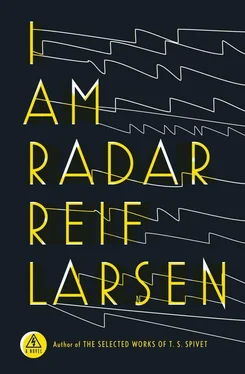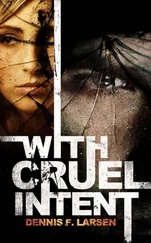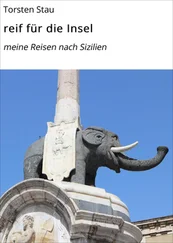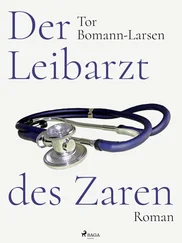“I am from Uruguay,” he said. “I grew up in a modest house not far from the river in Fray Bentos. My mother was a washerwoman. Her name was María Clementina. I never knew my father. My mother rarely spoke of him. You can find all of this in the archives of Fray Bentos. I was unsettled as a child, but I had a good mind for names and places. . I could tell you the time without the aid of any watch. It should not come as a surprise that I was able to read from a very early age, even though my mother herself was illiterate. When I was seven, I fell off a horse and was badly injured. To this day, I carry a limp on my left side and my knee aches when the weather changes.”
“Me, too,” said Radar.
Funes glared at him. Evidently this was not a dialogue. He resumed: “My mother sent me away to Catholic school in Montevideo, though how she found the money for my tuition I still don’t know. But I did well there. . I was good at following instructions, and I didn’t ask many questions that did not have answers. When I turned eighteen, I swore my life to God: I became a monastic. I joined the Benedictine order at the Abadía de San Benito, in Luján. This too can be confirmed in the various public records. After two years in Luján, I heard about an opening at a monastery in Africa. Knowing this might be my only opportunity to see the world, I jumped at the chance. This is how I came to Zaire. The year was 1971. I joined the Monastère du Quatre Fleuves, near Kisangani. I barely spoke a word of French when I arrived, but the brothers took me in. There were ten of them. This has been recorded in several sources as well. They were kind men, with patience that could last one thousand years. It’s a pity our bodies and minds abandon us so soon — only the soul can take advantage of such patience. Soon after my arrival, Mobutu started his campaign of Zairianization. This was a difficult time for the young country. . The government seized all properties from foreign nationals and former colonials and gave them out to Mobutu’s friends. Some would say the country was already lost at this point, though the end would not come until much later. Luckily, we were sheltered under the church’s wing. It was a kind of immunity, but we all knew it could not last forever.
“I had noticed during my time in Kisangani that the town did not have a proper library, aside from that at the college. Books had always been a refuge for me, perhaps because I had always been an outsider wherever I went. And so I decided to start a small library for those who might take similar comfort in the realms of the imagination. . At first, it was mostly exegetic and hermeneutic texts. We had various translations of the Bible left behind by missionaries in transit, but I made an appeal to several schools in Paris and Montevideo and also New York City to send us their old secular books. I didn’t expect any response, but soon the books came — at first just a few, but then more and more. A woman in Paris sent us three hundred detective novels, which the children of course loved. We still had a reliable post system back then. . The river was open, and the mining companies had regular flights. It was all quite sophisticated. Our little library grew. I housed it in the old greenhouse in the back of the monastery, and the children would come. Many of them began to work for me as docents, organizing the books, making library cards, resealing bindings. We had all kinds of books. Lots of poetry, travel novels, plays, American literature — Melville, Twain, Steinbeck. I will not recount every title at La Petite Bibliothèque de la Connaissance, but it was well used. The sign above the door squeaked in the wind — I can still hear it now. . I will tell you that some of the other brothers in the order disapproved of the library. They claimed I was wasting my time. They didn’t consider the contents appropriate, but I was of the mind that God was in all books, and we should not bar the path to spiritual awakening, for there are many ways to climb up the mountain and feel His glory. At least this is what I told myself.”
He paused as a pair of birds flew out of the darkness and settled in the space beneath his chair. Funes looked down at them and then continued:
“Then the day I knew was coming finally arrived. The rebels came from the jungle and attacked the people. They were upset with the way the country was being run — or not being run — and they held us colonials responsible. I was, as usual, in the library. . I heard the shots. And my first instinct, I’m ashamed to admit, was not to go to my brothers’ aid but to protect the books. I locked the door and put a chair against it. But it was not enough, for soon the rebels came for me. . They shot down the door. They rushed in; they were so angry, swearing, cursing — it was as though they had been looking for the books this whole time, as though they blamed the books for their misfortune. None of them could read or write a word, but here they were, standing in my little library, fuming at the idea of such a place. One of them held me while they sprayed gasoline all over the shelves. What a waste of gasoline, I thought. I asked them why they were doing this, but all they said was ‘Be calm, be calm, Papa.’ They made me watch as they lit each shelf. . I couldn’t bear it. I broke away from my captors and I ran. . I ran straight into the flames, and the last thing I remember feeling was not the presence of God, as I might have expected — no, I was overwhelmed by this great sense of human effort. . to write, to live, to destroy. So much effort in the world, and in the end, all for nothing.”
“These don’t sound like the words of a monk,” Lars said from the shadows.
Professor Funes nodded slowly. “You’re right. I was never a monk. I only came to realize this much later.”
“But you survived?” said Radar.
“I awoke several days later. I had never expected to wake again, of course, but the family of one of my docents had found me in the library alive. He had gone into the flames and rescued me. I was badly burned, very badly burned, but alive. The books had collapsed on me, you see. . It turns out books are actually quite difficult to burn because of their thickness, because of their density, and so they formed a kind of shield around me. The father of this docent was one of the village healers. He wrapped me in aloe vera and sandalwood leaves and gave me a narcotic to chew for the pain. . Still, I could not move, as nearly all of my skin had peeled off. The ash from the books had cured into my flesh. It was like a balm. Even as I lay in such a painful state, I could also see how very lucky I was. Undoubtably, I was and remain grateful to the docent and his family, who risked their lives to shelter me. Soon after I awoke, it did not take long for me to discover that everything was different. Everything was not as it was. . Time had disappeared.”
He stopped speaking. Bertolt Brecht gave a little yip. The sounder was gently singing to himself.
His high-pitched voice began again: “Time, of course, had not disappeared. It was I who had changed — irrevocably. It took me a while to realize how, for once one changes, there’s no way to compare what it was like before the change, because you, the one who must compare, are already different. Bertucci called this ‘the conundrum of self-parallax’ in his Treatise of the Psyche . But eventually I came to comprehend my condition. Put simply: the fire had gifted me with the capacity for perfect and complete memory. Or cursed me, as it were. I had gained entrance into the Akashic Records, the record of all records. As unbelievable as it sounds, this has been my reality from that moment forth. I have become a catalog of existence. During those long months of recovery, while I lay in bed nursing my wounds, I remember every single crack in those hut walls. . I can draw them for you now. I remember every single call from the yellow-throated cuckoo that presided over the acacia adjacent to my window. . I gave him no name, knowing it would only deepen my curse. I remember every smell that came in from the cooking stove behind the little garden. I could recount every single meal during those three months, though every meal was the same. I remember every bee, every millipede, every lizard that crossed my sight and even those that did not. Before, I had only the slightest grasp of the Kele language of the natives, but, lying in bed and hearing them talk around me for perhaps a week, I already knew over a thousand words and could speak them perfectly. . If I wasn’t quite fluent, then I spoke as if I were one of them, as if I were a mirror. What, then, is the difference between this and fluency? I realized we were nothing but imperfect copies of those around us.
Читать дальше












